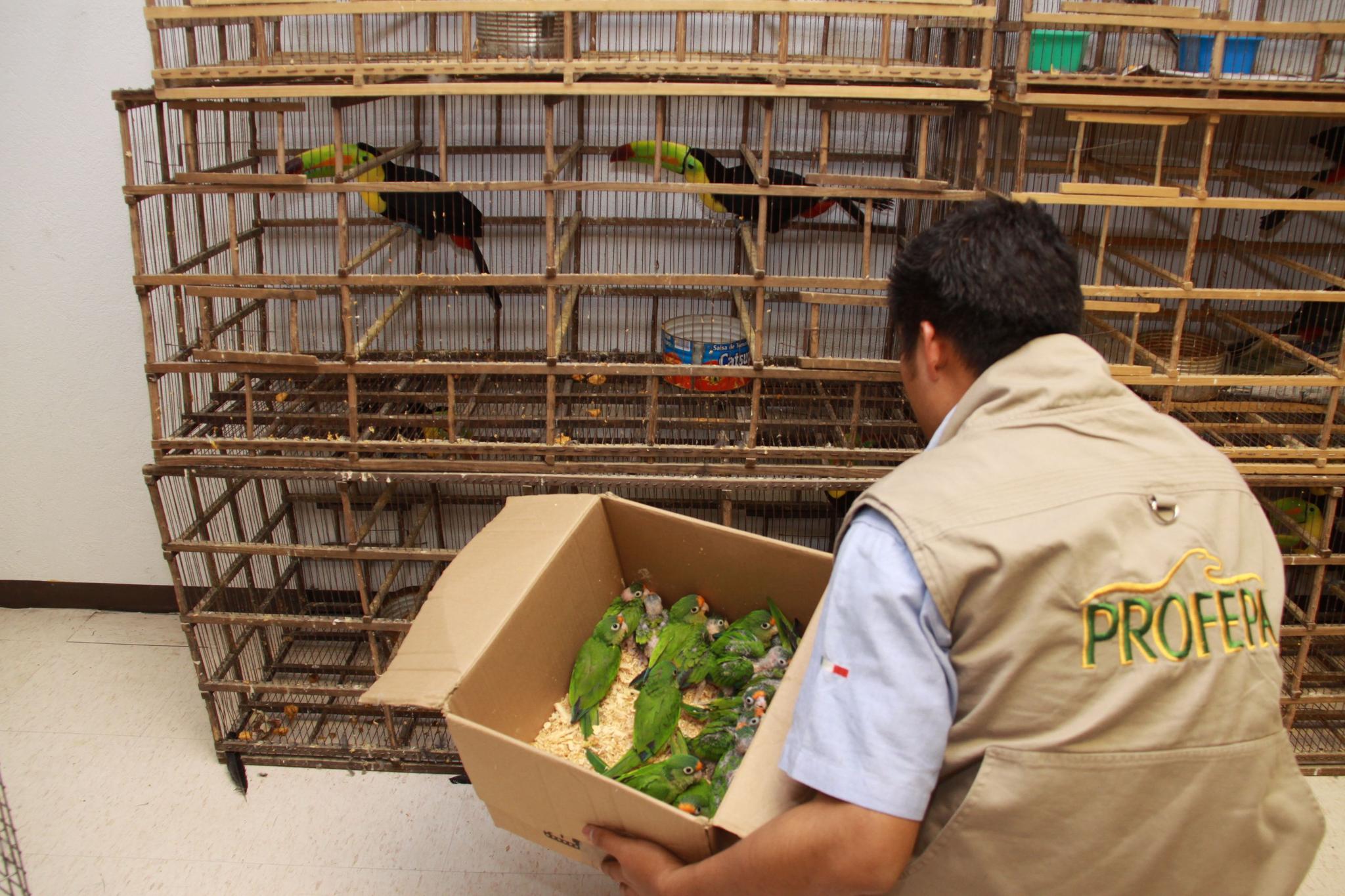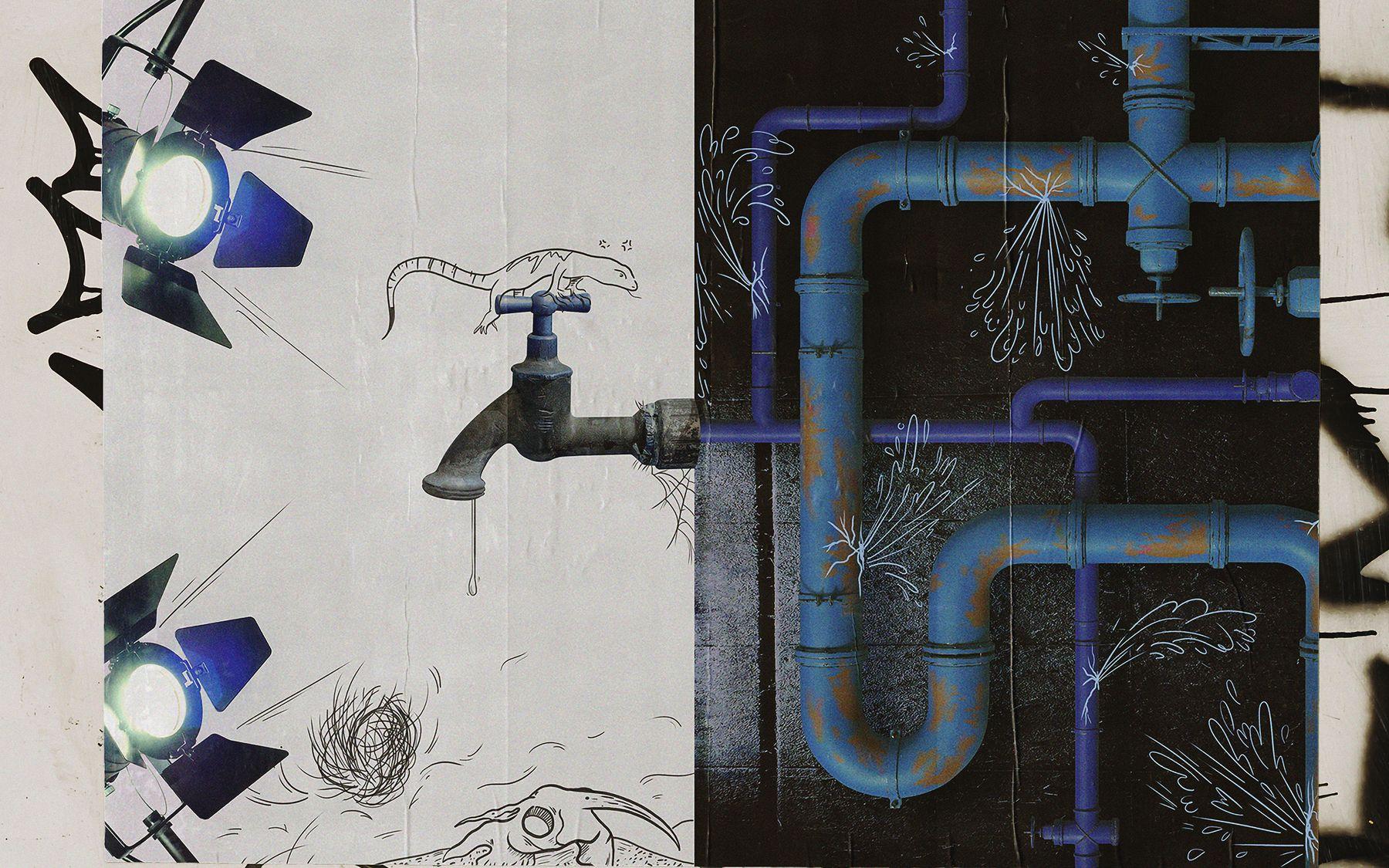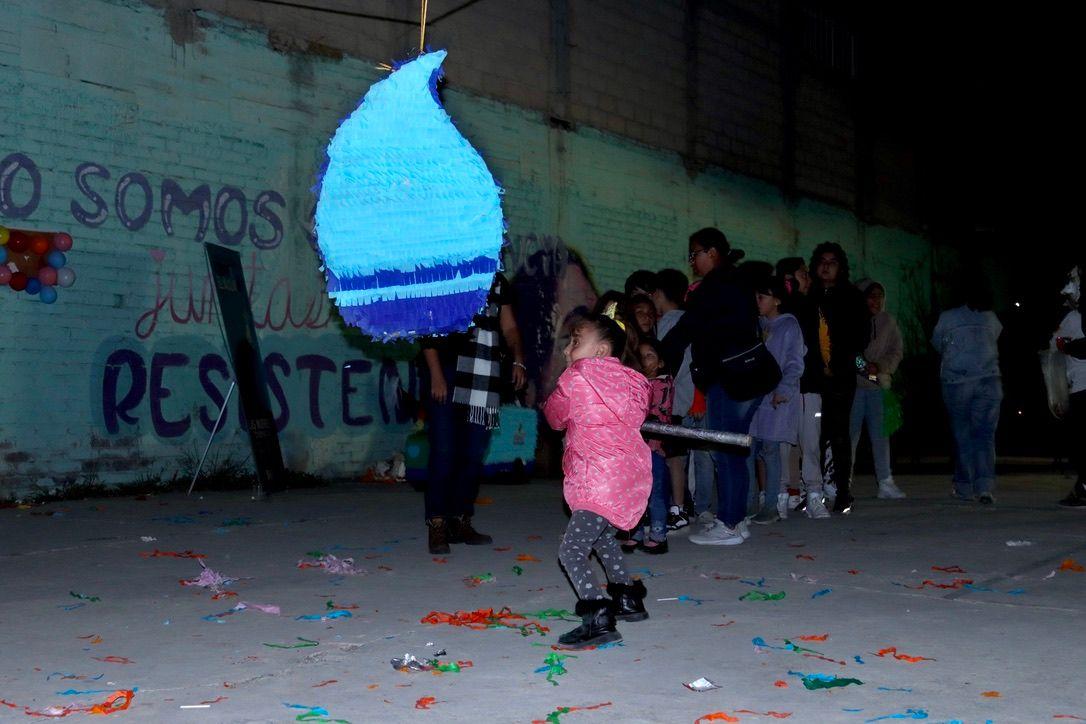The Facebook category says “candy store”, but the description says “on this page you buy and sell animals quickly and easily”. A search of seconds is enough for the social network to find dozens of groups in which species of all kinds are traded. There are images of turtle eggs, “parakeets” in cages where they can only move a few centimeters and even a German shepherdess breastfed six puppies with the comment “coming soon”.
Meanwhile, in a market in Mexico City, dogs, cats, chickens and parrots are piled up in different cages. Some to take home as pets, others in the corridors of sanitary ware. In another more specific search, even caimans or lions are found that are only a few months old. “There's no need to have papers,” tenants say.
Stopping these two types of species trafficking has become a challenge for authorities and animal rescue organizations. This is an international business that generates more than 20 billion dollars a year, making it the second most profitable crime after drug trafficking.
In Mexico, one of the countries with the greatest biodiversity, efforts are not enough to make a confiscation. During the six-year term of former president Andrés Manuel López Obrador, the wildlife insurance of the Federal Attorney for Environmental Protection (Profepa) fell 40.3% between 2019 and 2024 (taking 2019 as a starting point because it was the first calendar year of government of the former president).
At the same time, the budget, the number of personnel, training and work equipment decreased and, with it, the modalities and routes for trafficking in wildlife increased.
“They kill us”
“It has come a long way and we are falling far behind,” replies María, an inspector at Profepa, when asked about the trafficking of species in recent years. For security reasons, the name for this report has been changed.
“It's complicated that we are so few inspectors. There are also (budgetary) cuts in gasoline for tours, including in the budget for keeping animals. It's hitting us pretty hard and the traffickers are gaining ground on us. In addition to how strong it is (buying and selling) on social networks,” laments the inspector.
During the interview, María recognizes that after years of working at Profepa, she was about to resign a few months ago. His reasons ranged from emotional exhaustion to having to pay on his own for the material for the recovered copies. In 2024, the institution only gave them a net, tweezers, a herpetological cuvette (for reptile management) and a pair of cage traps.
Added to this are years of governments where those responsible for sanctioning traffickers spared the cases. He recalls that on one occasion, as part of his research on trafficking in species on social networks, he quoted a person who was engaged in illegal sale and this almost cost him going to prison.
“They told me that this was an apology for the crime and that I, as a public servant, was abusing authority, that we at Profepa cannot carry out such investigations. So I better sent all the information about several traffickers who are on social networks to the Investigative Police... Her written response was that 'since it is not certain that the copies exist, the research cannot be carried out', so I don't know what to do,” says María.
For the inspector, the higher and legal authorities turned the work of Profepa into “a witch hunt” against the same personnel. “Instead of focusing on how important it was to stop a drug dealer, they focused on telling us 'you all do things wrong'.”

From 2018 to 2024, the number of staff dedicated to the federal inspection of Profepa decreased. According to a request for information via transparency, the six-year term began with 489 inspectors and ended with 480. That represents an average of 15 people per state.
Although the distribution of inspectors is equitable, since they are strategically divided by state, the entities with the highest number of personnel are: Mexico City and the metropolitan area, Sonora, Michoacán, Chiapas, Chihuahua, Campeche and Veracruz.
María points out that despite the scarce staff, her shoulders bear the functions of inspection, investigation, animal inspection, surveillance tours, carrying out operations, and even receiving rescue copies, which is the responsibility of the Ministry of Environment and Natural Resources (Semarnat).
The reduction in staff has also impacted the efficiency of various activities. In Mexico City, which has become the epicenter of species trafficking, it is common that during operations in places such as the Sonora market, “information is leaked” and those responsible are not found or that inspectors prefer not to enter without the accompaniment of other authorities such as the capital's police or the National Guard to prevent attacks by tenants.
“'Let them come in and stop them', you could say that, but it's much more difficult,” María says when asked about the arrest for the sale of wildlife in the Sonora market. “A colleague from Profepa Metropolitana told me: 'If we try to enter ourselves, they kill us'. And just like that, there were five of them, they tried it once and they all got hit.”
There is no specific record of grievances against Profepa personnel, but in 2022, the third year with the least insurance during López Obrador's six-year term, it became known in local media that a group of inspectors was threatened and attacked by about twenty tenants who sold parrots and parakeets inside the Mixhuca market in Mexico City.
The numbers of the problem
In Mexico, reptiles rank first in wildlife trafficking. According to requests for information made through transparency to Profepa, from 2019 to 2024, around 6,225 insurances were carried out in which more than 125,700 wild species of flora and fauna were found.
Of the total number of specimens in that period, more than 41,600 were sea and land turtles. Some other species that top the list are sea cucumber, chit palm and red cedar.
Assurances consist of arrest for having a wildlife specimen, while confiscation occurs when a legal authority determines if that person will have the copy removed or not. The latter will depend on factors such as the irregularity committed and the physical condition of the species.
In a review of the most emblematic insurance cases, in 2023, four insurances were carried out in which 2,000 Moreletii crocodiles, also known as swamp or Mexican, were found in Wildlife Conservation Management Units (UMAs) in the municipality of Othón P. Blanco, Quintana Roo.
The UMAs emerged as land voluntarily destined for the sustainable use of wild species. However, specialists consulted for this report point out that they have also served as areas to facilitate species trafficking.
“Semarnat gave permissions (for UMAs) left and right and without the ability to carry out verification. In theory, all UMAs should submit reports, but these are not verified. And at the time of revisions or assurances, Profepa does not have the right conditions for insurance. It confiscates and sometimes the animals stay on the same property because it has no staff or where to take them, how to transport them and how to keep them,” says Alejandro Olivera, representative in Mexico of the Center for Biological Diversity.
Regarding the entities, Mexico City and the State of Mexico, mainly the municipalities that make up the metropolitan area of the country's capital, concentrate the largest amount of insurance. These entities are followed by Michoacán, Veracruz, Oaxaca, Quintana Roo and Baja California.
“The capital (Mexico City) is like the host for the distribution of species, it's where a lot of traffickers are and it's where we have not only digital access, but traditional markets that have been selling animals for years, such as the Sonora Market, the New San Lázaro or the Fish and Pet Market (Mixhuca),” explains Olivera.
Efforts and will
“Among the important things that we have detected is that trafficking in species does not happen because people have a need for livelihood, that is, trafficking is not happening because of a person who went down a nest and took advantage of that, but rather it is a trafficking network, we are talking about organized crime,” says veterinary doctor Elsy Cabrera Baz, general director of the civil association TIVÚ.
For more than seven years, Cabrera Baz and a group of professional colleagues consolidated TIVÚ, which operates in Chiapas for the rescue and rehabilitation of wildlife. In the process, they have faced animal trafficking.
“We work in areas of Protected Natural Areas where there are conflicts because one community has become involved in species trafficking and the other is protecting wildlife,” explains the general director of TIVÚ A.C.
They also work in coordination with authorities such as Profepa, from reporting the illegal purchase and sale to receiving copies of a confiscation to check their health and aid in their recovery.
“There is also an important issue here, most of the specimens that are the product of confiscation rarely have the opportunity to return to nature and not because they are not physically fit, but because rehabilitation is very expensive and few places that receive these animals have the conditions or characteristics to be able to carry out rehabilitation,” says Cabrera Baz.

For the CEO of TIVÚ A.C. it is essential that there be a link between different authorities to reduce the problem. This represents a coordination to which civil associations dedicated to wildlife contribute from other aspects such as environmental education against the purchase of animals.
“But obviously if there is no political will, then it's hard to do these things, right?” , questions Cabrera Baz.
María, the inspector of Profepa, agrees that in order to advance the problem, it will be necessary for the political will of the new administration headed by President Claudia Sheinbaum.
“It seems that they do want to work and let's hope that they will make the change in this situation because what we urgently need is the change of legislation so that we can do roadblocks, so that we can do research on social networks, so that we can be trained, so that more staff can be hired. In the meantime, here we are going to continue as much as we can”, concludes the inspector.






Comentarios (0)